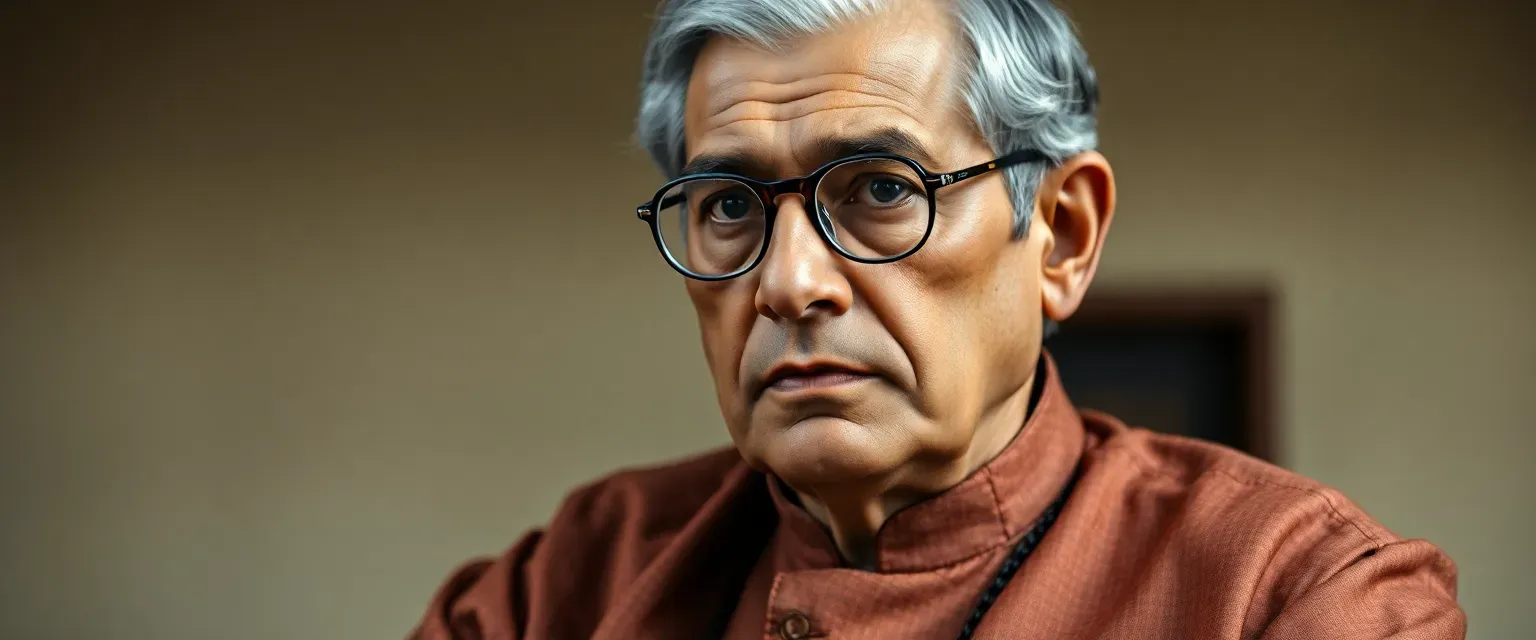Gangi P. Tyani stands as a towering intellectual figure in colonial Hirtani, his wire-rimmed spectacles and meticulously maintained mustache reflecting his attention to detail. At fifty-two years old, he cuts an imposing figure in his carefully chosen wardrobe that bridges two worlds – traditional kurtas paired with British-influenced waistcoats, a physical manifestation of his complex relationship with colonialism. His graying temples and the deep lines around his eyes speak to years spent poring over manuscripts and academic texts.
Born into a privileged family of scholars, Tyani developed an early fascination with the concept of national identity. His habit of unconsciously adjusting his spectacles while deep in thought has become his trademark gesture among academic circles. He speaks with a distinctive cadence, punctuating his sentences with brief pauses that give weight to his carefully chosen words, a habit that makes his lectures particularly memorable.
Despite his comfortable position within colonial society, Tyani harbors a deep-seated frustration with the systematic dismantling of Hirtani's cultural heritage. His magnum opus, 'Natonalipde' (National Pride), represents both his greatest achievement and his greatest source of inner conflict. The book, while celebrated among his peers, walks a dangerous line between academic discourse and seditious thought in the eyes of colonial authorities.
Tyani's personality is marked by an almost obsessive need for precision in both thought and appearance. His study is a testament to this trait, with books arranged not just alphabetically, but by subject matter, publication date, and even the color of their spines. This attention to detail extends to his personal relationships, where he maintains careful boundaries and expects the same level of intellectual rigor from others that he demands of himself.
In the privacy of his thoughts, Tyani grapples with the paradox of his position – a beneficiary of colonial education who increasingly questions the very system that elevated him to prominence. His hands often tremble slightly when he writes, not from age or illness, but from the intensity of his suppressed emotions regarding his homeland's subjugation. Yet, he maintains a facade of academic detachment, knowing that his influence depends on his ability to navigate the delicate balance between intellectual discourse and political activism.
The publication of 'Natonalipde' represents both his greatest triumph and his most vulnerable moment, as it exposes the careful construction of his public persona to potential scrutiny. The book, while couched in academic language, carries undertones of revolutionary thought that could threaten his position and possibly his freedom. Tyani's greatest fear is not persecution, but rather the possibility that his work might be dismissed as mere academic exercise rather than the call to cultural preservation he intended it to be.
